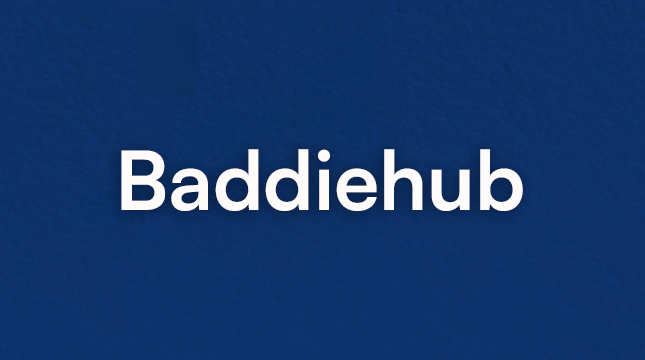
In the vast digital landscape, few communities have made as deep an effect as Baddiehub. This online phenomenon has emerged as a central switch for many who embrace the “baddie” aesthetic—a bold, attractive style characterized by confidence, high fashion, and impeccable beauty. The rise of Baddiehub shows larger cultural trends and highlights the baddiehub of social media in healthy diet modern beauty standards and lifestyles.
Baddiehub’s roots can be followed back to the early 2010s, when social media platforms like Instagram began to popularize a specific look defined by sharp dental contouring, long lashes, and daring fashion choices. Influencers and celebrities, such as the Kardashian-Jenner clan, played a pivotal role to advertise this aesthetic. Over time, a dedicated community formed around these ideas, and Baddiehub appeared. This digital space provided a platform for users to share their attractive looks, makeup tutorials, and fashion tips, fostering feelings of belonging among like-minded individuals.
One of the key factors behind Baddiehub’s rapid growth is its symbiotic relationship with social media algorithms. Platforms like Instagram and TikTok prosper on creatively appealing content, and the rubbed, high-glamour posts typical of Baddiehub members are algorithmic gold. As users build relationships these posts, taste, sharing, and commenting, the content is further amplified, reaching even larger audiences. This cycle of activation and visibility has helped Baddiehub turn into a superior force in the digital beauty and fashion sectors.
The influence of Baddiehub provides beyond just looks. It has become a powerful movement promoting self-confidence and empowerment. For many, taking on the baddie persona means enjoying one’s individuality and celebrating personal beauty. Town is known for its supportive nature, with members frequently uplifting one another through positive comments and inspiration. This environment of mutual admiration and support has made Baddiehub a beacon of positivity in the often-critical world of social media.
However, Baddiehub is not without its challenges and criticisms. One significant concern is the pressure to adapt specific beauty standards. The baddie aesthetic, while empowering for some, can also be exclusionary, promoting a narrow definition of beauty that draws attention certain body types, skin tones, and fashion choices. This pressure can lead to issues related to self-esteem and body image, particularly among younger users who may feel forced to meet these ideas.
Another point of contention is the commercialization of the baddie lifestyle. With the rise of influencer culture, many Baddiehub members have turned their online personas into lucrative careers, partnering with brands to promote products. While this provides economic opportunities, it can also blur the lines between genuine content and advertising. Critics state that this commercialization can challenge the authenticity of the community, altering it into a marketplace rather than a space for genuine connection and self-expression.
Despite these challenges, Baddiehub continues to center and adapt. Town has increasingly embraced diversity, with a growing focus on inclusivity. Influencers and users from various backgrounds, body types, and civilizations are gaining prominence, challenging the previously narrow beauty standards. This shift towards greater representation is important for the community’s sustainability, ensuring that it remains relevant and resonant with a larger audience.
Moreover, Baddiehub’s have an effect on fashion and beauty trends cannot be overstated. The aesthetic pioneered by this community has permeated mainstream culture, influencing everything from high fashion to streetwear. Brands are keenly aware of the baddie trend and frequently collaborate with influencers to give you access to this vibrant market. It has led to a proliferation of products and styles that cater to the baddie ethos, further solidifying its place in contemporary fashion.
Looking ahead, the future of Baddiehub seems promising. As social media continues to center, so too will town. Technological advancements such as augmented reality (AR) and virtual reality (VR) offer exciting possibilities for more immersive and interactive content. Imagine virtual fashion shows, makeup try-ons, and even virtual meet-ups within the Baddiehub sphere. These innovations could redefine how members build relationships town and express their baddie identities.
Additionally, the ongoing focus on sustainability and meaning practices is likely to influence Baddiehub’s advancement. As consumers become more conscious of environmental and social issues, town often see a shift towards promoting sustainable fashion and beauty practices. This could involve showcasing eco-friendly brands, sharing tips for reducing waste, and encouraging more mindful consumption habits.
In conclusion, Baddiehub represents a dynamic and influential digital community that has reshaped modern beauty and fashion countryside. Its rise to prominence underscores the transformative power of social media in creating and keeping cultural movements. Even as it faces challenges related to conformity and commercialization, Baddiehub’s commitment to empowerment and inclusivity positions it for continued success. As it evolves, this community will likely remain a central figure in the ever-changing world of digital culture, inspiring countless individuals to embrace their inner baddie.